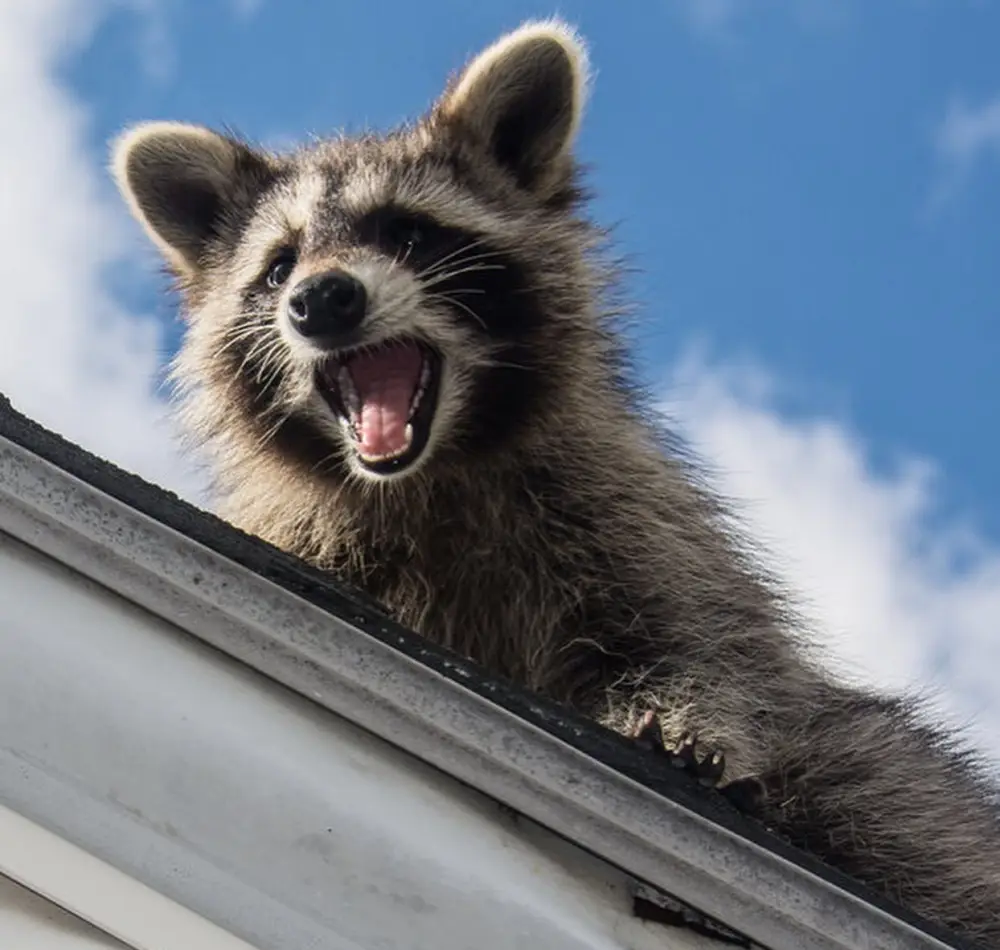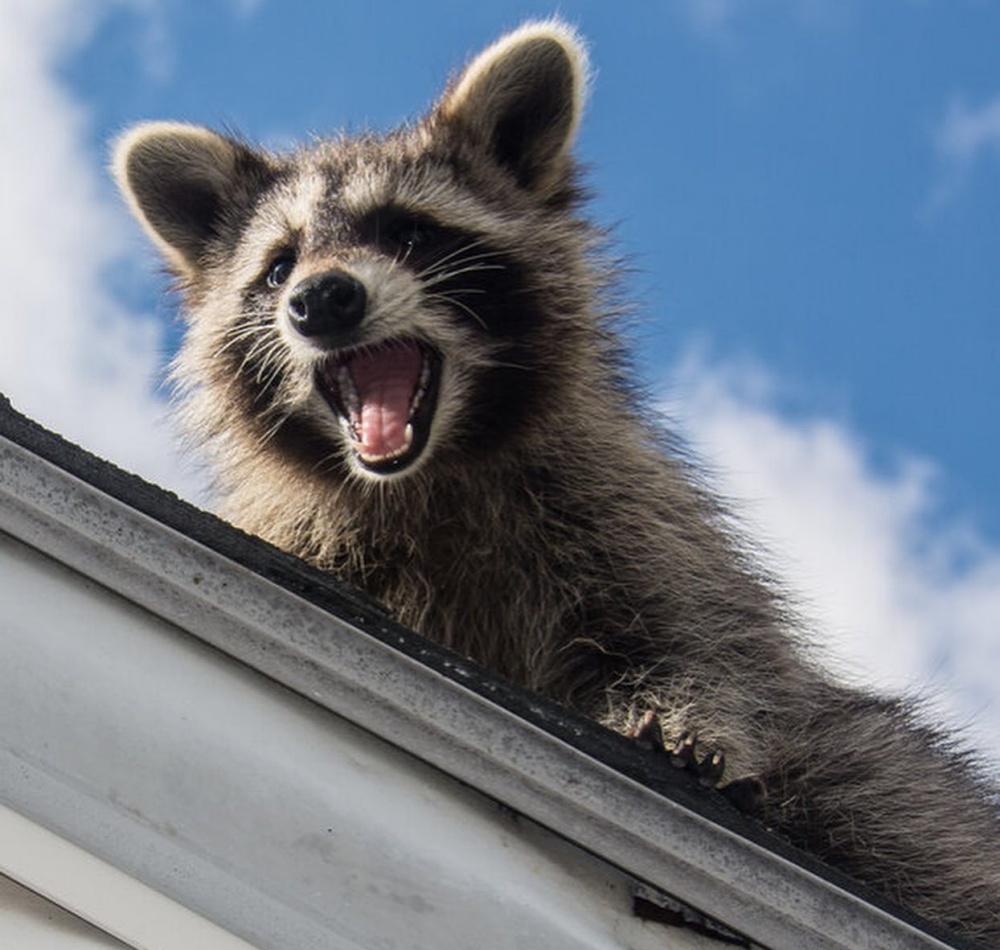Raccoon Behavior and Habits
Raccoons are highly adaptive creatures that can be found across North America in various habitats. They’re easily recognized by their distinctive black mask-like markings around their eyes and bushy tails with light and dark rings alternating. Raccoons are known to be opportunistic omnivores – which means they will consume almost anything they come across – from fruits and vegetables, insects, small mammals, to garbage!
Raccoons have the unique ability to use their front paws like hands, which enables them to manipulate objects and open containers easily. Furthermore, researchers have documented this behavior when washing their food before eating it; its exact reason remains disputed among researchers.
Raccoons are adept climbers due to their sharp claws and strong hind legs. Their sharp claws allow them to swiftly scale trees or structures in search of food or shelter; in addition, these intelligent animals are known for their problem-solving skills when faced with obstacles or challenges.
Understanding raccoon behavior is vital when managing potential infestations in your home or property. By being aware of their signs of activity and understanding how they behave, you can take preventive steps against any damage they might cause.

Signs of Raccoon Infestation in Your Home
Raccoon infestation can be both bothersome and potentially hazardous, so it is essential that homeowners know how to recognize signs that indicate their presence so that prompt action can be taken against an infestation. One common sign is droppings near food sources or entry points containing seeds or berries undigested by the animals themselves – one sure indication of an raccoon presence!
Damage to your property is another clear indicator of raccoon activity. These animals are known for using their strong claws and dexterous paws to open garbage cans, tear screens apart, or break into attics or crawlspace. If you observe any holes in the roof or siding, or torn insulation or torn ductwork that appear suddenly – that could be an early telltale sign that raccoons have attempted to gain access.
Sounds coming from your attic or walls at night could indicate an infestation by raccoons. Raccoons are typically active between dusk and dawn hours; if you hear scratching sounds, thumping noises, chattering sounds from above when everyone else is sleeping it may indicate they have found shelter in your home.
Early recognition of these signs will enable you to take timely measures to address the situation before it worsens further. When dealing with a raccoon infestation, always turn to professionals with experience handling wildlife removal safely and efficiently.
Raccoon Risks and Damage
Raccoons may seem harmless and cute, but they pose several dangers that could cause considerable damage if they decide to come into your home. One major concern is rabies transmission. Raccoon bites could transmit this deadly virus if they bite someone (including yourself or your pets). Furthermore, their droppings contain roundworm parasites which are potentially hazardous if accidentally consumed by humans.
Raccoons pose both health risks and property destruction risks. Their strong jaws and sharp claws allow them to tear through wood shingles with ease, leading to extensive roof, attic, chimney, wall damage from searches for shelter or food. Raccoons will often create access holes by ripping apart vents or screens before chewing through electrical wiring in your attic posing an imminent fire risk.
Raccoons are notorious for their scavenging habits and often search garbage cans in search of food scraps, creating chaos while inviting other pests like rats or mice onto your property. Furthermore, this activity increases disease transmission risks.
As previously discussed (oops! sorry! I missed that part!), it’s essential that any potential risks associated with having raccoons in and around your home are promptly addressed. Being aware of both their dangers and damages caused should motivate homeowners to take preventive steps against these critters invading their space.
Effective Preventative Measures to Keep Raccoons Away
One effective strategy to deter raccoons from entering your property is by sealing all potential entry points. Raccoons are adept climbers that can gain entry through attics, chimneys and crawl spaces – make sure that any gaps or openings that could provide entry are closed off with steel mesh or hardware cloth to block entry for these creatures.
Other measures for protecting against raccoons include eliminating all food sources that might attract them, as raccoons are known to feed on any available source. It’s wise to secure any trash cans with tight-fitting lids or store them until garbage pickup day, avoid leaving pet food outside overnight and install bird feeders that raccoons can’t access easily.
Maintaining your yard can help ward off raccoons from taking up residence on your property. By trimming tree branches that overhang the roof and provide easy entry through attics for these pests, clearing away brush piles or debris where raccoons might hide or build their dens, and clearing away possible hiding places, your property becomes less inviting for these pesky creatures.
By adhering to these effective prevention methods, you can drastically decrease the chances of having a raccoon infestation in your home or yard. By taking proactive steps such as blocking off entry points and eliminating food sources, as well as maintaining an orderly environment for these curious creatures to pass safely by without harming either them or yourself.
DIY Tips for Raccoon Deterrence and Removal
One effective strategy for deterring raccoons from entering your property is securing all trash cans and compost bins, especially those near food sources such as garbage cans. Raccoons are drawn by scent, so ensuring these containers are tightly closed will prevent them from digging through them in search of food waste. Consider using bungee cords or heavy-duty lids to further impede their access.
Another helpful tip for eliminating potential sources of water on your property. Raccoons need water as much as food, so eliminating standing water or fixing leaky faucets will deter them from sticking around. Furthermore, trimming tree branches that droop over your roof could prevent easy entry for these animals into your home.
Opting for Professional Raccoon Removal: The Best Solution
Contact a professional wildlife removal service who will safely and humanely remove it from your property. Raccoons can be aggressive when cornered and may carry diseases like rabies; in such instances it’s wiser to seek professional assistance for removal.
Raccoons, renowned for their adaptability and cunning, can pose a variety of challenges for homeowners. While DIY methods might seem tempting, they often fall short due to the complexity of raccoon behavior and the potential risks involved. Professional raccoon removal specialists, like Pest Therapy, have the knowledge and experience to effectively and ethically handle these situations. From assessing the extent of the infestation to implementing humane trapping and relocation techniques, our experts ensure both the safety of the inhabitants and the well-being of the raccoons themselves. Relying on a professional not only guarantees a swift and efficient resolution but also minimizes the likelihood of property damage and the spread of diseases associated with raccoons.
Contact Pest Therapy for help with animal control services for all types of wildlife issues.
